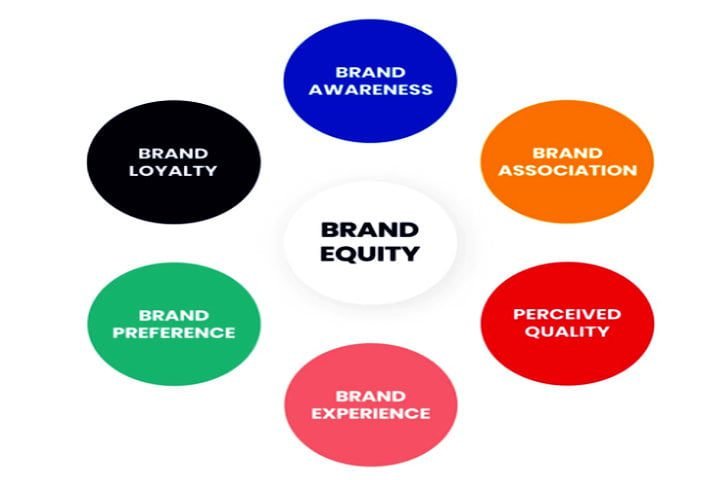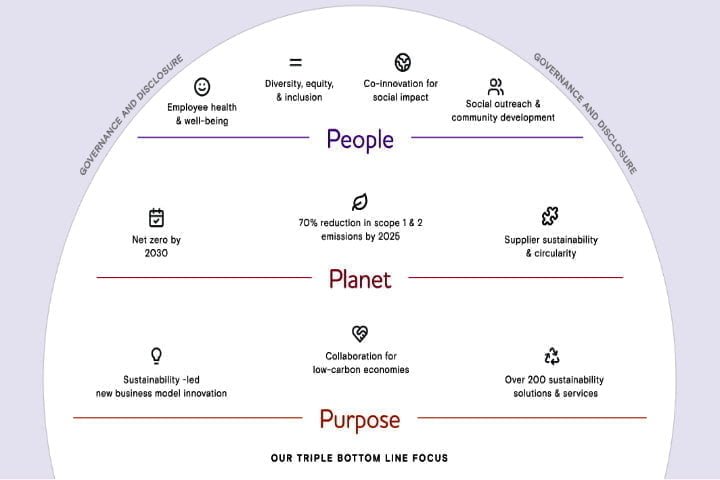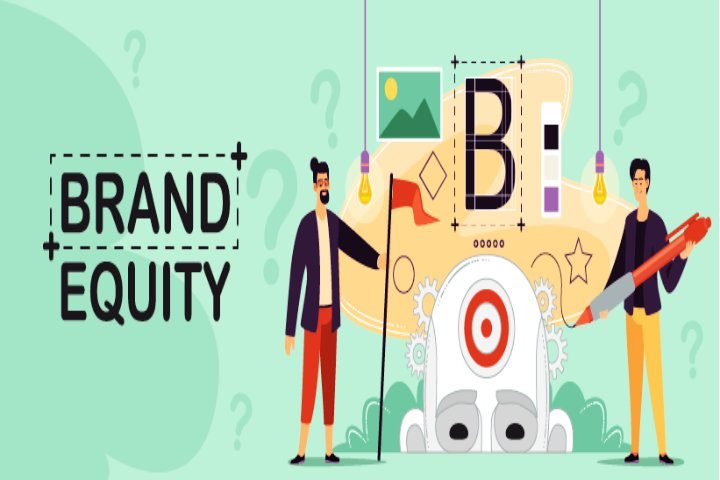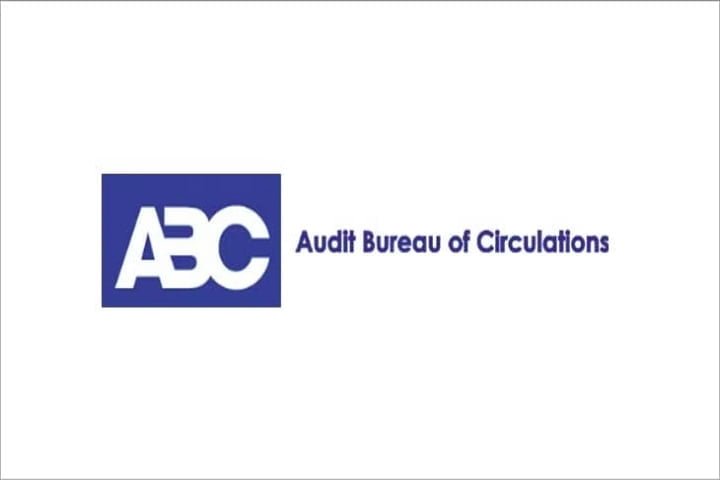Brand equity indicates how much a brand is worth in the market by showing its strength and value. One of the significant advantages of brand equity is that it can facilitate a company’s long-term growth.
In terms of value, brand equity is the premium that a business charges when it sells a product with a well-known name instead of a generic one.
In terms of strength, brand equity exists as a function of consumer choice in the marketplace. When a customer knows a brand and holds positive and unique brand associations in their mind, they will make it their preferred choice.
Understanding the Advantages of Brand Equity
The advantages of brand equity can be evaluated from various perspectives, including:
1. Brand Image
Brand equity is closely tied to a brand’s image. A strong and positive brand image can significantly enhance a brand’s equity. Factors like brand reputation, consumer perception, and brand personality contribute to this image. Brands with strong equity are perceived as more valuable in the eyes of consumers.
For example, Tata, one of India’s oldest and most respected conglomerates, has built a brand known for trust and reliability. This perception has allowed Tata to enter diverse industries, from salt to software, and gain immediate trust from consumers.
2. Customer Loyalty
Strong brand equity often translates into customer loyalty. When consumers have positive brand associations, they are more likely to stick with the brand over time.
A big part of brand equity is how much money a brand can make in the long run. It shows how long the brand will last and how much money it will make over time.
3. Price Premium
Brands with high equity can charge premium prices for their products. This is the extra amount that consumers are willing to pay for a branded product over its generic counterpart. It reflects the perceived value and quality associated with the brand.
For instance, Bata, a renowned Indian footwear brand, has built a reputation for durability and comfort. As a result, consumers are willing to pay a premium for Bata shoes compared to lesser-known brands.
4. Competitive Advantage
Brand equity provides a competitive edge. Brands that resonate with consumers have a distinct advantage in crowded markets.
A clear benefit of brand equity is the increased sales volume it generates when compared to other brands in the same category. Brands that can command a larger market share often have higher brand equity.
Hindustan Unilever Limited (HUL), which owns a vast portfolio of consumer goods brands, has a strong brand equity that allows it to stay ahead of the competition and maintain a dominant position in the Indian market.
5. Brand Extensions
Strong brand equity opens the door to successful brand extensions. Indian conglomerate Reliance is a prime example. Founded as a textile brand, Reliance’s brand equity has enabled it to expand into telecommunications, retail, and more. Consumers associate Reliance with reliability and innovation, making these extensions successful.
6. Reduced Marketing Costs
Building brand equity reduces the need for aggressive marketing efforts. Strong brands can rely on their reputation to attract customers. For instance, the Indian multinational Infosys has become synonymous with IT service excellence. This strong brand equity saves Infosys substantial marketing costs as clients come to them based on their brand reputation.
7. Returns to Shareholders
A brand’s financial performance is a key metric. Brands that consistently deliver higher returns to shareholders tend to have strong brand equity.
The stock market performance of a company’s shares can also reflect brand equity. When the market values a brand highly, it can increase the company’s share price.
Factors contributing to Brand Equity

Brand Awareness
Brand awareness is the foundation of brand equity. It represents the probability that consumers are familiar with the brand’s existence and availability. Brands like Maggi and Coca-Cola have achieved remarkable brand awareness through extensive marketing campaigns and consistent product availability.
Brand awareness includes both brand recognition and brand recall.
Brand Recognition
It is the ability of the consumer to recognize prior knowledge of a brand when they are asked questions about that brand or when they are shown that specific brand. Brands like Titan and Bajaj are easily recognized in the Indian market due to their distinctive logos and consistent branding.
Brand Recall
It means that consumers should correctly recover the brand from their memory when given a clue, or they can recall the specific brand when the product category is mentioned.
Brand recognition is consumers’ ability to identify a brand when prompted. Brand recall goes beyond recognition. It’s the ability of consumers to retrieve the brand from memory without prompting.
Brand Associations
Brand association is anything that is deeply seated in the customer’s mind about a brand. Brand associations are the mental images and symbols linked to that brand.
For example, the “Amul Girl” is an iconic brand association for Amul, symbolizing freshness and quality. These associations can be both visual and emotional, and they play a significant role in shaping brand equity.
Brand Loyalty
Brand loyalty is the extent to which consumers repeatedly choose a specific brand within a product category. Brand loyalty exists when the consumer feels that the brand consists of suitable product characteristics and quality at the right price.
It is measured through word-of-mouth publicity, repetitive buying, price sensitivity, commitment, brand trust, customer satisfaction, etc.
In India, brands like Maruti Suzuki have nurtured brand loyalty by consistently delivering cars that cater to the needs of Indian consumers.
Brand Elements
Creating a unique and specific brand identity is vital for building brand equity. Brand elements, also known as brand identifiers, play a pivotal role in achieving this. The idea is to develop brand elements that can adequately communicate about the brand and its point of difference from competing brands.
Some key brand elements include a Unique Selling Proposition (USP), Brand Logo, Brand Style, Brand Ambassador, and Brand Slogan. These brand identifiers facilitate the process of consumer brain mapping and play a key role in building brand equity. Over a period of time, consumers can identify the brand through brand elements.
Building and Sustaining Brand Equity
Building and sustaining brand equity is an ongoing process that requires careful planning and execution.
Consistency
Consistency is key in branding. It is crucial to ensure that brand elements, messaging, and product quality remain consistent over time. This builds trust and a strong brand identity.
Quality
Quality is a fundamental aspect of brand equity. Delivering high-quality products and services is essential for building a positive brand reputation.
Customer Experience
Providing an exceptional customer experience (CX) can lead to positive brand associations. This includes excellent customer service, ease of purchase, and after-sales support.
The intense competition in the marketplace has compelled brands to invest significant efforts and resources into creating exceptional customer experiences. With customers’ expectations constantly increasing and their behaviours evolving, brands prioritise CX as a fundamental component for driving business growth.
Modern businesses are placing a significant emphasis on the Chief Experience Officer (CXO) role to meet these expectations and gain a competitive edge.
Top management institutions like IIM Lucknow and the Indian School of Business Hyderabad offer professional CXO courses.
Havas CX, which is an annual barometer for customer experience performance, in its report for 2022, called the X Index, putApple, scoring 64.05 at the top in India, ranked as per customer experience.

Innovation
Brands that develop new ideas and stay relevant in the market command higher equity. Brands stay competitive by changing with the times when it comes to customer tastes and market trends.
Marketing and Advertising
Investing in marketing and advertising campaigns reinforces the brand’s values and identity. These campaigns should resonate with the target audience and create positive associations.

Indian FMCG (fast-moving consumer goods) major Hindustan Lever Limited (HLL) to keep its beauty shampoo brand, Sunsilk, relevant to its target group (young girls), started an online social network and community called the Sunsilk Gang of Girls (GoG).
It was the first all-girl online community in India and quickly caught the target group’s attention (TG) as HLL promoted it with a 360-degree media communication blitz.
Community Engagement
Engaging with the community and supporting social causes can enhance brand equity. Consumers appreciate brands that give back to society and are committed to social responsibility.
Feedback and Improvement
Brands actively seeking customer feedback and using it to improve their products and services convey that they value customer opinions and are dedicated to continuous improvement.
Advantages of Brand Equity in the Indian Market
To better understand the advantages of brand equity, let’s explore a few examples of how some renowned Indian brands have utilized this concept to their advantage.
Tata Consultancy Services (TCS): TCS, an IT services company, has established itself as a global leader in the industry. Its strong brand equity in IT services has allowed it to secure major contracts worldwide.

TCS follows the Tata group philosophy of building sustainable businesses rooted in the community and demonstrating care for the environment.
Maruti Suzuki: Maruti Suzuki is a dominant force in the Indian automobile market. Its strong brand equity for reliable and fuel-efficient cars has allowed it to maintain a significant market share.
Its strength is to stay competitive by changing with the times when it comes to customer tastes and market trends. The company consistently reports healthy financial figures driven by its brand reputation.
Mumbai Indians: In India, cricket is like a religion. The Mumbai Indians (MI) franchise in the Indian Premier League (IPL) stands out for its brand equity in this cricket-crazy nation.
MI’s strong fan base and constant brand engagement have made it one of the most valuable IPL franchises.
Brand equity is a powerful concept that shapes the success and profitability of businesses. It comprises the value and strength of a brand, influencing consumer choices, loyalty, and willingness to pay a premium.
Let us know your thoughts on the advantages of brand equity in the comments…







